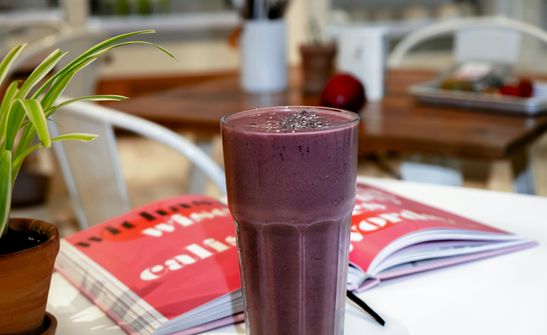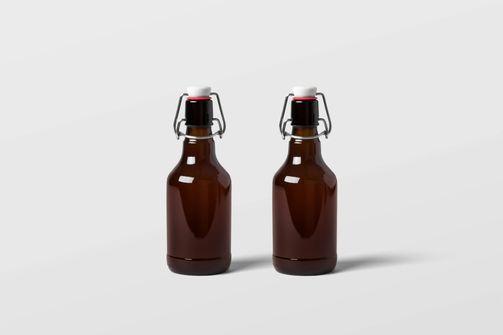
Why Electrolytes Are Essential for Active Women: A Guide to Natural Replenishment
When it comes to staying hydrated, electrolytes are the unsung heroes that keep your body balanced and energized, especially for active women. Whether...

Welcome, everyone! Today, we’re delving deep into the transformative world of supplements designed to combat fatigue, specifically for us women. Whether you’re grappling with the hormonal upheavals of menopause, the lingering effects of COVID-19, the exhaustive battle against cancer, or the relentless challenge of chronic fatigue syndrome, this comprehensive guide is your ally. Our journey is not just about supplements; it’s a holistic approach to understanding and tackling fatigue at its roots.
Fatigue transcends mere tiredness; it’s an overwhelming lack of energy that significantly impairs our quality of life. For women, the causes are diverse: hormonal changes during menopause, post-viral syndromes like those following COVID-19, the physical and emotional toll of cancer treatments, or the mysterious depths of chronic fatigue syndrome. Tackling specific deficiencies, such as vitamin D or iron, can dramatically affect our energy levels and overall well-being.
Vitamin D, often celebrated as the ‘sunshine vitamin,’ is critical beyond bone health; it’s essential for maintaining energy levels. A pivotal study published in the “Journal of Clinical Endocrinology & Metabolism” found that Vitamin D supplementation significantly improved fatigue in individuals with Vitamin D deficiencies within just a few weeks. Sources include sunlight, fortified foods, and supplements, but the FDA recommends a daily intake of 600 IU for most adults, adjusting as needed for individual health conditions.
Iron’s role in forming red blood cells and transporting oxygen is vital for energy. A study in the “Canadian Medical Association Journal” in 2012 highlighted that women experiencing unexplained fatigue saw significant improvement with iron supplementation, even if they weren’t clinically anemic. Iron-rich foods are beneficial, but supplements, particularly in the range of 18-20 mg daily as recommended by the FDA, can help bridge the gap for those with deficiencies.
Omega-3 fatty acids, found in fish oil and flaxseeds, are crucial for heart health and energy production. They reduce inflammation and are linked to improved cellular energy. Research in the “Journal of Clinical Investigation” shows that omega-3 supplementation can lead to enhanced energy levels and focus, suggesting a dosage of 250-500 mg of EPA and DHA daily.
The B vitamins, particularly B12 and B6, are instrumental in energy production. They help convert dietary energy into ATP (adenosine triphosphate), the energy currency of cells. A deficiency in these vitamins can lead to significant fatigue. The “National Institutes of Health” recommends 2.4 mcg of B12 and 1.3-1.5 mg of B6 daily for adult women.
Magnesium plays a crucial role in over 300 enzyme reactions, including energy creation. It helps regulate muscle and nerve function, blood sugar levels, and blood pressure. According to a study in “PLOS One,” magnesium supplementation can improve energy levels and sleep quality. The FDA suggests a daily intake of 320 mg for adult women.
Navigating the world of supplements can feel like trying to find your way through a maze, right? But here’s the thing: picking the right supplement is like having a map. Let’s get you that map.
Imagine you’re planning a trip. You wouldn’t just jump into it without checking the weather or your car’s condition, would you? Similarly, before you add any supplements to your routine, having a chat with your healthcare provider is crucial. Think of them as your personal health navigator.
Did you know? A 2019 survey revealed that over 77% of Americans are popping vitamins and supplements daily. Yet, a surprising number skip consulting their healthcare provider first (CRN, 2019). This step is vital, especially considering that certain supplements can interact with medications or might not be suitable due to specific health conditions.
Ever bought a fancy-looking gadget online, only to realize it didn’t live up to its promises? The same can happen with supplements. Look for seals of approval from third-party organizations like USP, NSF, or ConsumerLab. These seals are your assurance that what’s on the label is what’s in the bottle.
Reading the fine print on supplement labels is as important as reading the terms and conditions before an update on your favorite app. For instance, the form of vitamin D3 is more effective at raising and maintaining overall vitamin D levels than D2. And when it comes to magnesium, did you know magnesium citrate is more easily absorbed by your body than magnesium oxide?
It’s tempting to think more is better. But just like adding too much salt can ruin a dish, overdoing it with supplements can lead to problems. Always stick to recommended dosages to avoid any adverse effects.
In addition to integrating targeted supplements into your regimen, adopting specific lifestyle adjustments can significantly amplify your fight against fatigue. These changes, rooted in scientific research, provide a comprehensive approach to enhancing energy levels and overall well-being.
Consistent physical activity is crucial for boosting energy. The “American Heart Association” recommends at least 150 minutes of moderate exercise weekly. Studies show that individuals who transition from a sedentary lifestyle to regular physical activity experience a 20% increase in energy levels (Puetz, T.W., et al., 2006, Psychotherapy and Psychosomatics). Even brief exercises, such as a 10-minute walk, can offer immediate energy boosts (Thayer, R.E., 1996).
A nutritious diet is key to combating fatigue. The “Harvard Health Publishing” emphasizes the importance of a diet rich in fruits, vegetables, lean proteins, and whole grains for energy management. Adequate hydration also plays a critical role; even mild dehydration can significantly impact cognitive function and energy levels (Armstrong, L.E., et al., 2012, The Journal of Nutrition).
Quality sleep is essential for energy restoration. The “CDC” reports that 1 in 3 adults does not achieve sufficient sleep, negatively affecting their energy and health. The “National Sleep Foundation” suggests aiming for 7-9 hours of sleep nightly to avoid the adverse effects of sleep deprivation on mood and cognitive function.
Effective stress management is vital for maintaining energy levels. Mindfulness and meditation can significantly reduce stress and improve fatigue symptoms. A notable study published in JAMA Internal Medicine (Goyal, M., et al., 2014) found that mindfulness meditation programs had moderate evidence in improving stress-related outcomes, including fatigue.
Proper hydration is essential for maintaining optimal energy levels. Research indicates that even a minor fluid loss of 1.36% post-exercise can impair mood and concentration, highlighting the importance of regular fluid intake. The “National Academies of Sciences, Engineering, and Medicine” recommend approximately 2.7 liters of fluids per day for women (Armstrong, L.E., et al., 2012, The Journal of Nutrition).
Adopting these lifestyle strategies, alongside appropriate supplementation, offers a robust solution to managing fatigue. Each element supports your body’s natural energy mechanisms and contributes to improved health and vitality. This holistic approach not only helps in fighting fatigue but also enhances your overall quality of life.
So, we’ve been on quite the journey together, diving into the world of supplements like Vitamin D, Iron, and those all-important B vitamins, not to mention lifestyle tweaks that can seriously perk up your energy levels. Whether it’s the fatigue from menopause, the aftermath of COVID, or just the everyday drag, we’ve uncovered there’s a mix of vitamins and good old healthy living that can give us that much-needed boost.
Think of it like this: grabbing the right supplement off the shelf is a bit like finding the perfect coffee blend that hits just right, but without the caffeine crash. And when you pair that with moving your body, eating those greens, getting enough Zs, and keeping stress in check, you’re not just fighting fatigue; you’re setting yourself up for a life full of energy. It’s about listening to your body, talking things over with your doc, and maybe a bit of trial and error to find what makes you feel like you can conquer the world. Here’s to that journey towards feeling unstoppable, one step at a time.
A: Vitamins like Vitamin D, B12, and Magnesium play crucial roles in managing menopause fatigue. They help in regulating energy levels and improving overall well-being during this transition.
A: Yes, supplements such as Vitamin D, Vitamin B complex, and Omega-3 fatty acids have been shown to aid in recovery from post-COVID fatigue by supporting energy production and reducing inflammation.
A: For general tiredness, a combination of B vitamins for energy metabolism, Iron to prevent anemia, and Magnesium for muscle and nerve function can be effective. Always consult with a healthcare professional before starting any new supplement.
A: The effects of Vitamin D on fatigue levels can vary. Some people may start to notice improvements in energy within a few weeks, but it can take up to three months for Vitamin D levels to optimize and for you to feel the full benefits.
A: While there’s no one-size-fits-all solution, supplements like Coenzyme Q10 (CoQ10), Vitamin B12, and Magnesium have been linked to improved energy levels in people with chronic fatigue syndrome. However, it’s essential to work with a healthcare provider to tailor the approach to your needs.
A: Regular exercise, maintaining a balanced diet, ensuring quality sleep, staying hydrated, and managing stress can significantly enhance the effects of supplements and contribute to overall energy levels.
A: Omega-3 fatty acids can help reduce fatigue by decreasing inflammation in the body and playing a role in brain health, which can impact energy levels and cognitive function.
A: Look for supplements with high-quality ingredients and those that have been tested for purity and potency. Also, consider your specific health needs, dietary restrictions, and consult with a healthcare provider to ensure the supplements you choose are appropriate for your situation.
A: Yes, Iron is fundamental in forming red blood cells, which transport oxygen around the body. Iron deficiency can lead to anemia, causing fatigue and weakness. Iron supplements can help improve energy levels if you’re deficient.
A: Absolutely! Foods rich in Iron (like spinach and red meat), Magnesium (like almonds and avocados), B vitamins (like whole grains and eggs), and Omega-3 fatty acids (like salmon and chia seeds) can all contribute to higher energy levels.

When it comes to staying hydrated, electrolytes are the unsung heroes that keep your body balanced and energized, especially for active women. Whether...

Throughout history, cultures across the globe have embraced the healing power of beverages made from herbs, spices, and natural ingredients to promote...

Smoothies are a great way to fuel your body with essential nutrients, but adding adaptogenic herbs can take your wellness routine to the next level. A...

Herbal teas have been cherished for centuries as natural remedies for promoting overall health and well-being. For women, in particular, herbal teas c...

Fermented beverages like kombucha, kefir, and other probiotic-rich drinks are gaining popularity due to their powerful effects on gut health. These dr...